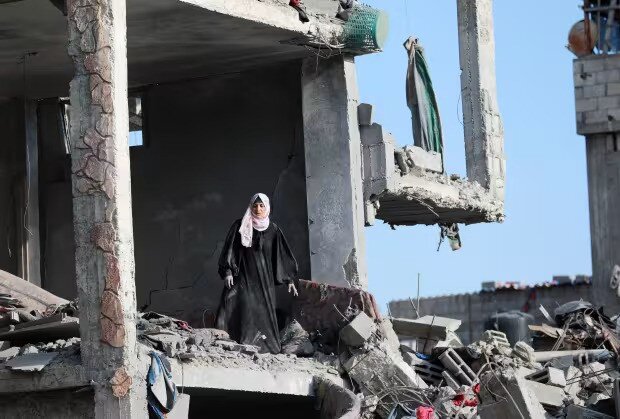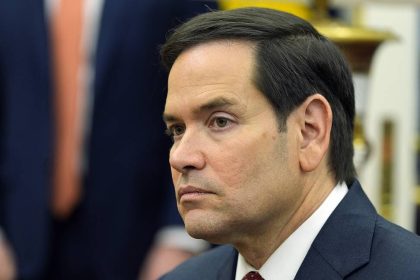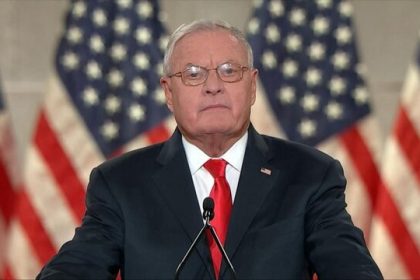Wall Street Journal: A Gaza ceasefire is unlikely under Biden
According to the American media, the Arab mediators said that the ceasefire negotiations between the Palestinian resistance group Hamas and the Zionist regime’s cabinet have reached a dead end in recent days, and they consider it unlikely that any agreement will be reached before the end of the Biden administration.
According to Isna, the Zionist regime repeatedly obstructs the negotiation process, and Hamas renewed its insistence that Tel Aviv commit to a permanent ceasefire, an issue that the Zionists have long rejected.
The lack of progress in the ceasefire for the war that the Zionist regime has waged in Gaza and other areas since October 7 and has claimed the lives of more than 45,000 Palestinians is a blow to the Democratic President Joe Biden’s team, which has spent considerable time and political capital. It has invested in fruitless pressure for an agreement.
In the occupied territories, the families of the Zionist prisoners put a lot of pressure on the Prime Minister of the Zionist regime, Benjamin Netanyahu, to reach an agreement that would guarantee their freedom, arguing that their lives and well-being are endangered every day of captivity.
After the Lebanese Hezbollah resistance reached a cease-fire with Tel Aviv in late November, hopes for a deal rose in Gaza, with mediators hoping it could lead to another deal. to move At that time, Hamas told the mediators that it would like to postpone the discussion on a permanent end to the conflict in Gaza until the next round of negotiations, and raised the hope that in exchange for a halt conflicts, at least some of the prisoners should be released.
According to mediators, the parties were considering a 60-day ceasefire period that would lead to the release of 30 Zionist prisoners in Gaza.
In exchange, they said, the Israeli regime would release Palestinian prisoners and allow more humanitarian aid to flow into Gaza, according to the Wall Street Journal. White House National Security Adviser Jake Sullivan said after meeting with Netanyahu in Jerusalem in mid-December that he thinks an agreement on the release of prisoners and a ceasefire in Gaza is close.
But the negotiations stalled as the details deepened and both sides hardened their positions.
According to the Wall Street Journal, mediators said the Israeli regime insisted on receiving only live prisoners in any exchange and refused to release some Palestinian prisoners sought by Hamas, while the Palestinian resistance group called for an end to the conflict. Giving to the war revived.
Netanyahu’s office declined a request for comment, but has publicly accused Hamas of breaking its commitments. Hamas also accused the Zionist regime of changing the terms of its demands, but said that although the negotiations have been postponed, they have not yet failed. The spokesperson of the US State Department did not respond to a request for comment.
National Security Council spokesman John Kirby said last Friday: “We will continue to work on this issue as much as we can to try to get a cease-fire agreement before we leave office.” “It’s because of obstruction or refusal to move on any of these details that we’re still not done,” he added.
An American official said that the structure of the possible agreement has not changed since the spring, but the most important issue that now separates the two sides is about the Zionist prisoners and the Palestinian prisoners. The defeat underscores the persistence of mistrust and rift between the two sides despite more than a year of war and months of efforts by the United States, Egypt and Qatar to reach an agreement.
According to Palestinian health officials, more than 45,000 Palestinians have been killed in Gaza since the October 7 attacks. Also, the humanitarian situation has become extremely complicated and the heavy attacks of the Zionists in the north of the Gaza Strip have continued.
Arab mediators said they expect both sides to return to the negotiating table after a new administration takes office in Washington. At the same time, US President-elect Donald Trump said in a threatening tone on the “Truth Social” social network that if the Zionist prisoners are not released before he takes office in January, “I will raise hell in the Middle East.”
The Zionist regime says that 96 prisoners remain in Gaza, most of whom live in the occupied territories. They include dual nationals and at least 30 captives that Tel Aviv has determined are no longer alive. Four more captives taken before October 7, 2023, bring their total to 100.
Hamas has not yet provided a complete list of Zionist prisoners to the mediators and has said that it needs more time and a pause in the war to confirm their location and conditions.
According to the mediators, this Palestinian resistance movement is now asking the United States, Qatar and Egypt to guarantee that negotiations for a permanent ceasefire and the complete withdrawal of Israeli forces from Gaza will continue after the completion of the initial agreement.
Most of Gaza’s 2.2 million people have been displaced by the war, with many living in makeshift tents near the coast in southern Gaza. As the temperature drops and successive storms hit the region, Gazans say that the conditions in the camps are getting tougher and more Palestinian children are dying every day from the cold and lack of medicine and equipment.
end of message
News>RCO NEWS
RCO

















